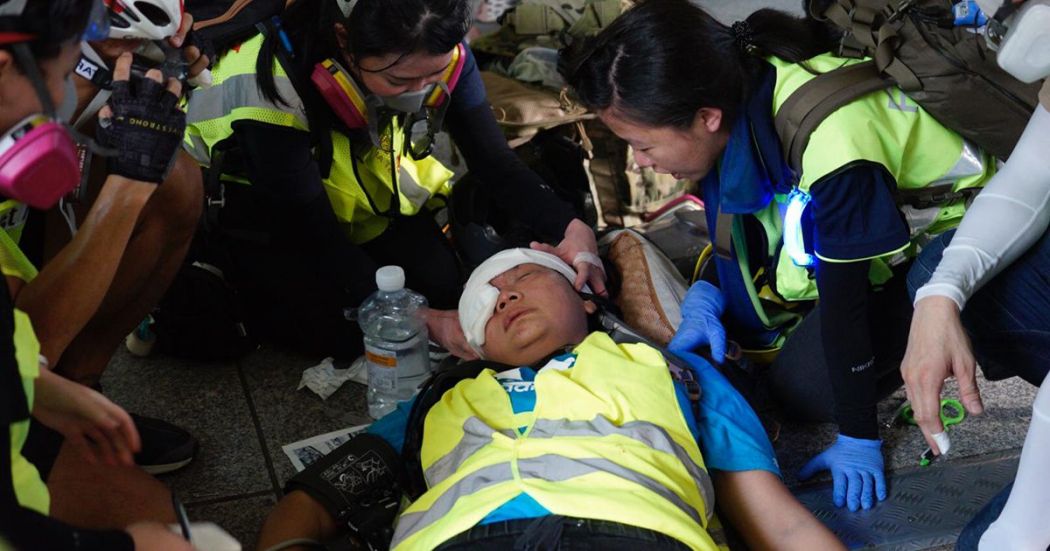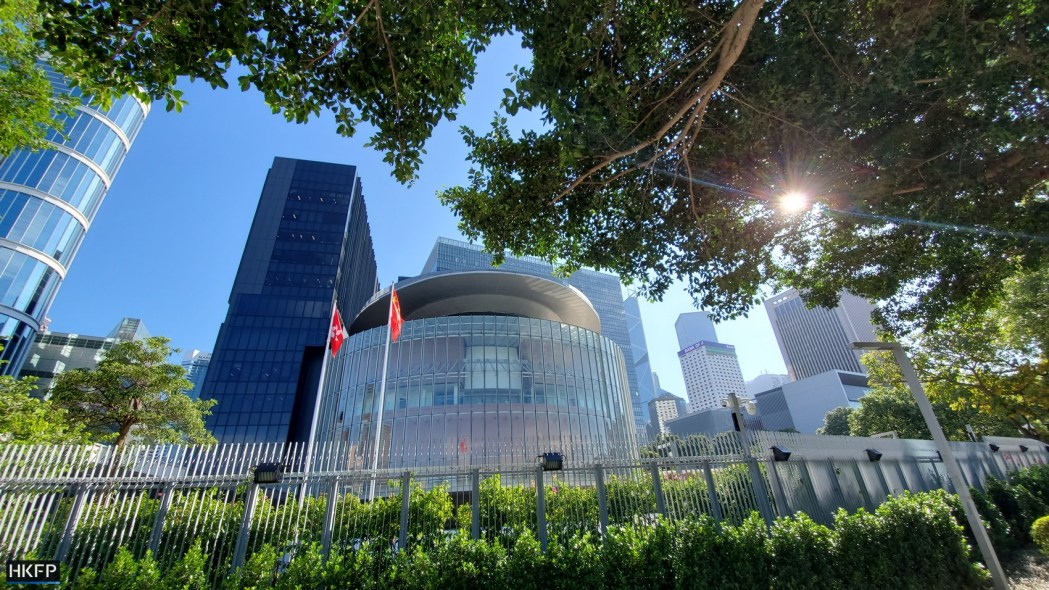Is the Hong Kong police force subject to any form of public accountability? If the experience of the Hong Kong Journalists Association is anything to go by, the answer is no.
After a wait of two years, the ironically named Independent Police Complaints Council has not only refused to pursue 26 out of 27 complaints concerning police treatment of reporters during the 2019 protests, but it accused the journalists’ association of failing to provide adequate information to investigate the complaints, even though a number of them were accompanied by video evidence.

The refusal by this so-called independent body to investigate complaints hardly comes as a surprise. The IPCC previously produced a blockbuster whitewash report on the 2019 attack by pro-China gangsters at the Yuen Long station. It painted the attack by armed thugs against unarmed civilians as a dispute between two gangs in which the police failure to protect members of the public was airily brushed aside.
It would be bad enough if the hapless IPCC were the only public body failing to achieve public accountability despite being charged with precisely this task. What is clear however is that citizens are to be deprived of all forms of redress in the public sphere.

The abolition of accountability starts with the purging of the legislature, ensuring that all members owe their allegiance primarily to the people they are supposed to hold to account. The purge of the second tier of elected officials, district councillors, is now underway with a vengeance.
What this means is that the public have nowhere to turn to seek redress for misdemeanours in government and there is no chance that the government will have to account for its actions – be it a black hole consuming public funds under the label of national security or a reasonable explanation of Hong Kong’s science-blind draconian anti-Covid policies that are increasingly isolating it from the rest of the world.
It is only when accountability disappears that people begin to understand what democracy really means. It is not some fanciful concept but a practical means of ensuring that the people who run the government appreciate that their real bosses are members of the public. The public have the right and the means to call them to account if they are not up to the job, including the right to put them out of a job altogether.

In the revamped Hong Kong system, the citizens’ so-called representatives are chosen by a small cabal, even smaller than the membership of the Election Committee because this body has itself been transformed into a puppet for implementing the wishes of the bosses in Beijing. The members of the committee serve at their pleasure and will only serve as long as they do what they are told.
In authoritarian systems the justification for this lack of accountability and deprivation of civil liberties consists of the weary mantra that efficient governance must not be impeded by constant discussion – which advocates of dictatorship characterise as nothing more than obstruction. The authoritarians argue that they know what’s best for the people, so there is little point in constantly consulting them.
In Carrie Lam, the Chief Executive in Name Only (CENO) who is effectively an authoritarian in baby boots, the Chinese Communist Party has found a near-perfect foil. Not only is she driven by the conviction that she always knows best and is irritated at being questioned, crucially she can be relied upon to do what she is told to do by her bosses.

The contempt for the people held by authoritarian regimes, combined with arrogance, inevitably produces poor and careless governance. At one level, it is also terrifying because in the absence of constraints authoritarians will incarcerate and murder their opponents. At another level, a system run by those who rise to the top because of their subservience and obsequiousness elevates the most useless and incompetent of officials.
The results are often farcical, and readers are recommended to pick up the seminal work by the Croatian author Slavenka Drakulic entitled How We Survived Communism and Even Laughed. In the old Yugoslavian dictatorship, the regime was busy digging its own grave with its arrogance and stupidity. On the way to the burial a great many people died, innumerable hardships were incurred and, as it turned out, the entire nation was split apart into several bitterly warring factions. And yet the people clung to their sense of humour to survive.
At the moment it is very hard to see the funny side of things in Hong Kong as the white terror is in full rampage mode. However, and this is certain, the time will come when the sheer absurdity of the current regime becomes the butt of many jokes that will help people weather the cruellest of storms. Hopefully the level of devastation seen in Yugoslavia will not be visited upon Hong Kong before this stage is reached.
Support HKFP | Policies & Ethics | Error/typo? | Contact Us | Newsletter | Transparency & Annual Report | Apps
| HKFP is an impartial platform & does not necessarily share the views of opinion writers or advertisers. HKFP presents a diversity of views & regularly invites figures across the political spectrum to write for us. Press freedom is guaranteed under the Basic Law, security law, Bill of Rights and Chinese constitution. Opinion pieces aim to point out errors or defects in the government, law or policies, or aim to suggest ideas or alterations via legal means without an intention of hatred, discontent or hostility against the authorities or other communities. |
Help safeguard press freedom & keep HKFP free for all readers by supporting our team

More HKFP OPINION:
HKFP has an impartial stance, transparent funding, and balanced coverage guided by an Ethics Code and Corrections Policy.
Support press freedom & help us surpass 1,000 monthly Patrons: 100% independent, governed by an ethics code & not-for-profit.










